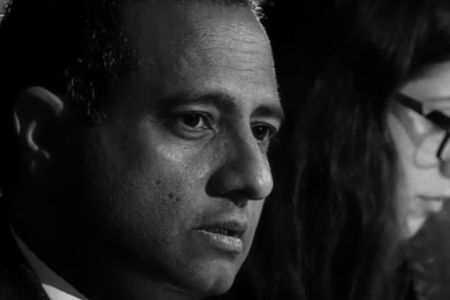Attorneyship Bill Challenges the Independence of Lawyers

The Government’s recent decision to resume the process of adopting the Formal Attorneyship Bill, by presenting it to the parliament, has reignited concerns among Iranian lawyers and jurists over the potential impact of the proposed bill in further undermining the independence of lawyers in Iran.
In my October 2012 report to the UN General Assembly, I echoed the International Bar Association’s then-concern over the proposed bill’s increase of Government supervision over Iran’s Bar Association. In June 2013, when the Government suspended consideration of the bill, I welcomed the decision, and I encouraged the Government to fully withdraw the bill in my subsequent October 2013 report to the General Assembly.
Unfortunately, this June the cabinet of the current administration amended and adopted the judiciary’s draft of the bill, and submitted it to the parliament for approval in September. The judiciary, seemingly discontented with the administration’s changes to the bill, has also submitted its own version of the bill to the parliament.
Although the current administration has maintained that it recognizes the independence of lawyers as a principle, the current draft of the bill apparently undermines lawyers’ independence, as it envisions a Supervisory Board that would have the authority to issue and suspended attorneys’ licenses. In addition to reports and documentation submitted by the Bar Association, the Supervisory Board would consider appeals from various government officials – including the head of the judiciary and the Intelligence Ministry – and the Supreme Disciplinary Court for Judges would be able to rule for license revocation. Moreover, under the existing draft, the Supervisory Board itself would consist of representatives from the executive and judiciary branches, and the Bar Association’s candidates would be required to have their “competence” established by another board, comprised of jurists from the Supreme Disciplinary Court for Judges.
In March 2013, the International Bar Association’s Human Rights Institute (IBAHRI) also issued a press release expressing “grave concern” over the draft bill and urging the Government to withdraw the bill. “An independent bar association and legal profession function as indispensable guarantees for the protection of human rights and access to justice. Lawyers cannot adequately and properly perform their duties while subject to external interference and controls over their ability to practice,” said Helena Kennedy, Co-Chair of the IBAHRI.
The head of the parliament’s Legal and Judicial Commission, Mr. Allahyar Malekshahi, recently acknowledged jurists’ and lawyers’ criticism of the draft bill. Mr. Malekshahi also maintained that once the Commission receives the bill, it would invite experts to weigh in, and would review their opinions and concerns.
In February 2014, while speaking to the Iranian Bar Association, President Rouhani stated that “a lawyer should be immune from any prosecution for carrying out its professional duty, and the investigative authority for the lawyers’ professional issues and problems is the Bar Association.” I also share this view and hope that authorities will take all necessary measures, including amending or withdrawing the current bill, to ensure that independence of the Bar Association and of lawyers is materialized in both law and practice.

